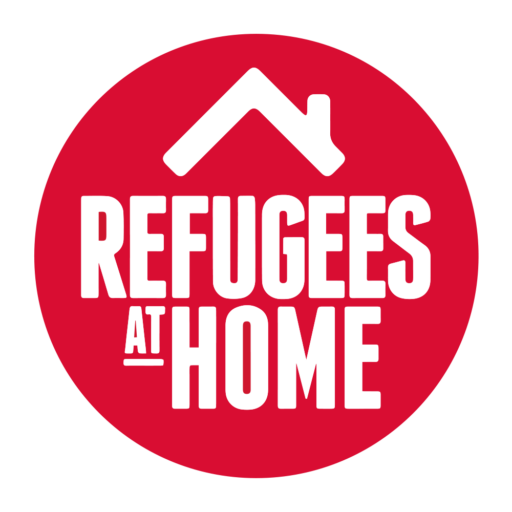
Emergency hosting in London
Clare Jones is the CEO of Polarsteps – a travel app that helps its 14 million users plan, track, and share their trips. When she’s not working from the company’s office in Amsterdam, Clare volunteers as one of our emergency hosts, opening her south London home at short notice to guests in need of a place to stay.
I was a support worker in my 20s and I’ve been involved with various humanitarian causes. At Polarsteps there’s a big focus on positive impact, but since stopping support work I missed having that frontline connection with people.
I wanted to make sure that when I stopped working in NGOs, I’d still find a way to stay connected to that experience. Meeting those in difficult circumstances is so important for not getting complacent about the change we can all make in the world.
That’s why I volunteer with Spires, an organisation supporting street-based sex workers in London, and it’s also why I host with Refugees at Home.
It’s been an amazing experience, and I’ve met so many different types of people from around the world who have had these incredible journeys and have so much to give.
The last person to stay was an artist and I got to hear all about the mosaics they made. Another guest was a baker who offered to bake for us, and we also hosted an incredible couple from Yemen who were just so amazing and brave in what they had achieved and gone through.
I’d happily pay to go somewhere to sit and listen to these stories, but through hosting I get to have these people come and stay with me and share their food, music, and culture, and I feel so lucky to be able to do it.
I love to stay in touch with my guests, but I’m also not offended if they don’t because they’re living their own life – I’m just a stop in their journey. I try and let it be led by them so that it doesn’t feel like I am forcing anything. I don’t want them to feel obliged in any way.
Often they’ll get in touch if they’ve had a major life event – a new job, or finishing their studies. A couple who stayed when they were pregnant sent photos of the baby and another who got their own flat texted to invite me for dinner.
I’ve learnt through a few years of hosting that however much you say ‘help yourself to anything’, people feel much more comfortable with food that’s set aside for them than helping themselves to the communal cupboards. I put aside an area where it’s clear that it’s their food and not mine, and it’ll be food that’s easy to take with them so that when they move on to another place they’ll have something to eat.
The main thing about hosting is trying not to worry about every little thing. One guest spent a lot of time in his room and I was concerned that I hadn’t made him comfortable enough to use the shared spaces. Eventually he told me that he just hadn’t had a room with a door for so long and he was enjoying having a space where nobody else comes in – which I totally understood!
Because I travel a lot for work and live in a rented flat, I can’t really host when I’m away for a long time, so I’ve always been on the emergency list. Emergency placements can happen quite quickly – someone at Refugees at Home will say ‘are you free now? Can you take someone this afternoon?’ Usually I’ll host them for anywhere between one night and two weeks.
Hosting has been one of the best things I’ve ever done and I want to carry on doing it for as long as I can. I haven’t had a single bad interaction and it’s genuinely added so much to my life.


